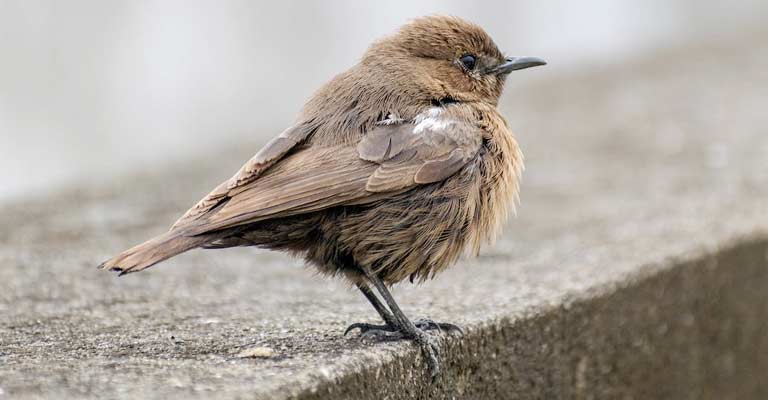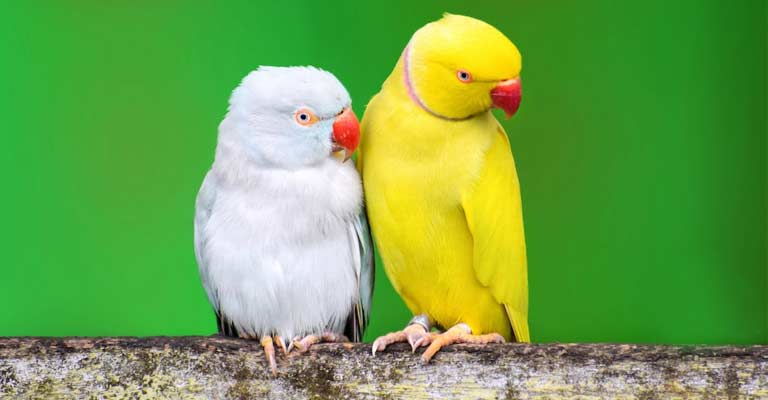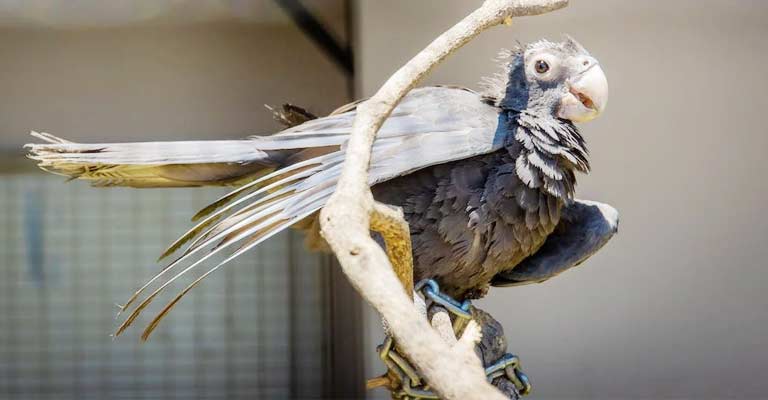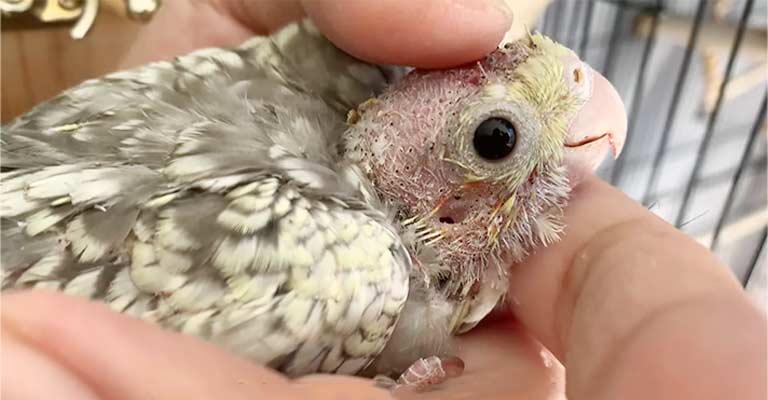Hormonal disorders in birds pose intricate challenges to avian health, necessitating a nuanced understanding of their causes, symptoms, and treatment.
The endocrine system intricately governs various physiological processes, and disruptions can manifest in behavioral, reproductive, and metabolic irregularities.
From stress-induced imbalances to genetic predispositions, a myriad of factors contribute to hormonal disorders in avian species.
Recognizing these disorders early is paramount for effective intervention, requiring attentive observation by bird owners and expert assessment by avian veterinarians.
This exploration delves into the causes, signs, and treatments of hormonal disorders in birds, shedding light on the comprehensive strategies needed to ensure the well-being of our feathered companions.

Hormonal Disorder In Birds
Hormonal disorders in birds can significantly impact their health and well-being, affecting various physiological processes. These disorders often arise from imbalances in the endocrine system, leading to abnormal hormone production or response.
Here are seven types of hormonal disorders in birds, each with distinct characteristics and potential consequences:
Reproductive Hormone Imbalance
A disruption in reproductive hormones can result in irregular breeding cycles, reduced fertility, or even complete cessation of egg production.
This disorder can stem from factors such as environmental stress, nutritional deficiencies, or underlying health issues.
Thyroid Dysfunction
Thyroid disorders in birds may manifest as either hyperthyroidism or hypothyroidism, impacting metabolism and energy regulation.
Common symptoms include changes in weight, feather quality, and overall activity levels, often necessitating veterinary intervention for diagnosis and treatment.
Adrenal Gland Disorders
Disorders affecting the adrenal glands can lead to imbalances in stress hormones, impacting the bird’s ability to cope with environmental challenges.
Symptoms may include increased aggression, feather picking, or changes in behavior, highlighting the importance of stress management in avian care.
Gonadal Hormone Abnormalities
Disturbances in gonadal hormones can result in gender-related issues, such as sex reversal or abnormal sexual behaviors. These disorders may arise from genetic factors or environmental influences, emphasizing the need for a thorough understanding of the bird’s hormonal profile.
Pituitary Gland Malfunction
The pituitary gland plays a crucial role in hormone regulation, and its dysfunction can lead to a range of issues. Overproduction or underproduction of certain hormones may cause growth abnormalities, feather molting problems, or disruptions in the bird’s overall development.
Calcium Metabolism Disorders
Calcium imbalance can affect bone health and eggshell formation. Birds with inadequate calcium levels may exhibit weak bones, fractures, or difficulties in producing structurally sound eggshells. Proper nutrition and exposure to natural sunlight are crucial for preventing such disorders.
Corticosterone-Induced Disorders
Elevated levels of corticosterone, a stress hormone, can result in immunosuppression, making birds more susceptible to infections.
Chronic stress, inadequate environmental enrichment, or changes in social dynamics can contribute to increased corticosterone levels, necessitating stress-reducing interventions.
How Do I Know If My Bird Has A Hormonal Disorder?

Detecting hormonal disorders in birds is crucial for maintaining their health and preventing potential complications. While the signs can vary depending on the specific disorder, there are common indicators that bird owners should be attentive to.
Here are seven signs that may suggest your bird has a hormonal disorder:
Altered Reproductive Behavior
Birds experiencing reproductive hormonal imbalances may exhibit unusual breeding behaviors, such as excessive courtship displays, persistent nesting activities, or aggression.
Keep an eye on changes in your bird’s reproductive cycle and behavior to identify any irregularities.
Abnormal Feather Plucking
Hormonal imbalances can contribute to feather plucking or self-mutilation. If your bird starts excessively preening or plucking its feathers, especially around the abdomen or chest area, it could be a sign of stress or hormonal issues that require attention.
Changes in Vocalization
Hormonal fluctuations may influence a bird’s vocalizations. Uncharacteristic or increased vocalizations, such as constant squawking or unusual calls, could be indicative of underlying hormonal disturbances affecting your bird’s communication patterns.
Weight Fluctuations
Hormonal disorders often impact metabolism, leading to changes in weight. A sudden gain or loss of weight, along with variations in appetite, may signal a hormonal imbalance. Regularly monitor your bird’s body condition to identify any abnormal fluctuations.
Recurrent Aggression
Increased levels of certain hormones, such as testosterone, can contribute to heightened aggression in birds. If your usually gentle bird becomes unusually territorial, attacking cage mates or even its owner, hormonal imbalances might be influencing its behavior.
Irregular Egg Laying
Female birds with reproductive hormonal disorders may lay eggs too frequently or irregularly. Watch for signs of egg binding, difficulty laying, or abnormalities in eggshell formation, as these can be indicators of hormonal issues affecting the reproductive system.
Bone Abnormalities
Hormonal imbalances, particularly those related to calcium metabolism, can affect bone health. Birds with insufficient calcium may develop weak bones, deformities, or fractures.
If you notice difficulties in perching or abnormalities in your bird’s skeletal structure, consult with a veterinarian for further evaluation.
What Are The Causes Of Hormonal Disorders In Birds?

Hormonal disorders in birds can arise from various factors, impacting the delicate balance of their endocrine system. Identifying the underlying causes is essential for effective management and prevention of these disorders.
Here are seven common causes of hormonal disorders in birds:
Environmental Stressors
Birds are highly sensitive to changes in their environment. Exposure to excessive noise, temperature fluctuations, or disruptions in the daily routine can induce stress, leading to hormonal imbalances.
Providing a stable and enriching environment is crucial for minimizing stress-related hormonal issues in birds.
Inadequate Nutrition
Poor dietary choices or imbalances in essential nutrients can contribute to hormonal disorders. In particular, deficiencies in vitamins, minerals, or amino acids can affect the proper functioning of the endocrine system, impacting hormone production and regulation.
A well-balanced and species-appropriate diet is crucial for preventing nutritional-related hormonal imbalances.
Genetic Predisposition
Some birds may have a genetic predisposition to hormonal disorders. Inherited factors can affect the development and function of the endocrine glands, leading to abnormalities in hormone production.
Breeders and bird owners should be aware of the genetic history of their birds to anticipate and address potential hormonal issues.
Lack of Natural Light
Exposure to natural light is essential for regulating the circadian rhythm and hormone production in birds. Insufficient access to natural sunlight, especially in indoor or caged environments, can disrupt the bird’s hormonal balance.
Providing access to full-spectrum light or allowing outdoor exposure can help mitigate this cause.
Reproductive Influences
The reproductive cycle itself can contribute to hormonal disorders, especially in sexually mature birds. Chronic stimulation of reproductive hormones due to the absence of appropriate nesting opportunities or the presence of a perceived mate can lead to imbalances.
Careful management of environmental cues and nesting conditions is crucial to prevent overstimulation.
Chronic Illness or Infections
Underlying health conditions, such as chronic infections or diseases, can impact the endocrine system. The stress response to illness may trigger the release of certain hormones, disrupting the normal hormonal balance.
Regular veterinary check-ups and prompt treatment of illnesses are essential for maintaining hormonal health in birds.
Age-Related Changes
As birds age, their hormonal patterns may naturally undergo alterations. Senescence can affect the functioning of the endocrine glands, leading to hormonal imbalances.
Understanding and adapting to age-related changes through appropriate care and diet adjustments can help mitigate the impact of aging on hormonal health.
How To Treat Hormonal Disorder In Birds?

Treating hormonal disorders in birds involves a multifaceted approach that addresses the underlying causes while providing supportive care to restore hormonal balance.
Here are seven types of treatment commonly employed for hormonal disorders in birds:
Environmental Modification
Adjusting the bird’s environment is a key aspect of treatment. This includes minimizing stressors, providing ample opportunities for natural behaviors, and creating a stable and enriched living space.
Environmental modifications can help reduce the impact of stress-induced hormonal imbalances and promote a healthier hormonal profile.
Nutritional Intervention
A balanced and species-appropriate diet is essential for treating hormonal disorders related to nutritional imbalances.
Veterinarians may recommend specific dietary changes, supplements, or fortifications to address deficiencies and support the bird’s overall health. Proper nutrition plays a critical role in restoring hormonal equilibrium.
Light Therapy
Adequate exposure to natural light is vital for regulating the bird’s circadian rhythm and hormonal balance. Light therapy, including the use of full-spectrum lighting, can be implemented to simulate natural daylight conditions.
This helps regulate the production of hormones and can be particularly beneficial for birds kept indoors.
Hormone Supplementation
In certain cases, hormone supplementation may be prescribed by a veterinarian to restore balance. This is typically a carefully controlled and monitored intervention, as improper use of hormonal supplements can lead to further complications.
Hormone supplementation is usually considered after other treatment avenues have been explored.
Behavioral Management
Managing behaviors associated with hormonal imbalances is crucial. This may involve training techniques to redirect or minimize certain behaviors, such as excessive nesting or aggression.
Positive reinforcement and environmental enrichment can be employed to engage the bird in alternative activities, reducing the impact of hormonal fluctuations.
Medical Treatment for Underlying Conditions
If a hormonal disorder is secondary to an underlying medical condition, addressing the primary health issue becomes paramount.
Veterinary treatment may include medications, antibiotics, or surgical interventions, depending on the nature of the ailment. Successfully treating the underlying cause can help normalize hormonal function.
Surgical Intervention (As a Last Resort)
In extreme cases where hormonal disorders persist and significantly impact the bird’s well-being, surgical intervention may be considered.
For instance, the removal of reproductive organs (gonadectomy) may be performed to mitigate chronic hormonal imbalances.
This is typically considered a last resort and is approached with careful consideration of the bird’s overall health.
Bird owners must work closely with avian veterinarians to determine the most appropriate and effective course of treatment for their feathered companions.
Regular check-ups and ongoing monitoring are essential to evaluate the bird’s response to treatment and make adjustments as needed.
The combination of a supportive environment, proper nutrition, and targeted interventions can contribute to the successful management of hormonal disorders in birds.
FAQs
Can hormonal disorders in birds be caused by stress?
Yes, stress is a common contributor to hormonal imbalances in birds. Environmental stressors, changes in routine, or insufficient mental stimulation can elevate stress hormones, impacting the bird’s overall hormonal equilibrium.
How can I prevent hormonal disorders in my pet bird?
Providing a stable environment, a balanced diet, and opportunities for natural behaviors can help prevent hormonal disorders. Regular veterinary check-ups are also essential to catch early signs and address potential issues.
Are hormonal disorders more common in certain bird species?
Some bird species, especially those with strong reproductive drives, may be more prone to hormonal disorders. However, any bird, regardless of species, can develop hormonal imbalances under certain conditions.
Can diet affect hormonal balance in birds?
Absolutely. A well-balanced and species-appropriate diet is crucial for maintaining hormonal health in birds. Nutritional deficiencies or imbalances can contribute to hormonal disorders, making proper nutrition a key preventive measure.
What treatments are available for hormonal disorders in birds?
Treatment approaches include environmental modifications, nutritional interventions, light therapy, hormone supplementation (under veterinary guidance), behavioral management, and, in extreme cases, surgical interventions.
The specific treatment plan depends on the underlying causes and the bird’s individual needs. Regular veterinary consultations are essential for effective management.
Conclusion
The management of hormonal disorders in birds demands a holistic approach encompassing environmental adjustments, nutritional considerations, and, when necessary, medical interventions.
As guardians of these avian companions, vigilance in observing behavioral changes and seeking professional guidance are pivotal.
The delicate balance of hormones profoundly influences the health and vitality of birds, making it imperative to address hormonal disorders promptly and effectively.
Through a combination of attentive care, proper nutrition, and collaboration with avian veterinarians, bird owners can contribute to the overall welfare of their feathered friends, promoting a harmonious and healthy life for these captivating creatures in our homes and aviaries.